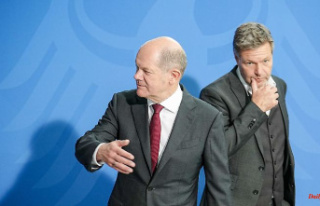The high energy prices, the general inflation and the war in the Ukraine scares the people in Germany. A survey commissioned by RTL and ntv shows what many people worry about. Above all, the fear of significantly more social conflicts is great.
The political and economic development occupies many people in the country. Around two-thirds of all Germans (67 percent) are currently very worried or even very worried that there could be a dramatic increase in social conflicts in society. This was the result of a survey by the Forsa Institute on behalf of RTL and ntv.
Based on their own experiences, people suspect that social cohesion is at stake. Every second citizen seems to be under enormous financial strain: 55 percent of those surveyed say they are very worried that inflation will eat up their savings or assets. 51 percent of respondents are concerned about heating costs, 47 percent are concerned about their own financial situation and about as many respondents (46 percent) about expensive groceries.
There is also general uncertainty: 51 percent of those surveyed are very worried about the war in Ukraine escalating to the point of a Third World War. 38 percent of those surveyed fear that there will not be enough gas for consumers and entrepreneurs in winter. 32 percent expect interruptions in the power supply and 37 percent have major or very major concerns about a deterioration in medical care. On the other hand, only 20 percent of those surveyed fear damage to health from corona - whether it is for themselves or someone close to them.
The analysis by the Forsa researchers showed that people with lower incomes - household net income below 2500 euros - worry significantly more often than people who have more than 4000 euros a month at their disposal. At the same time, dissatisfaction with politics is greatest among the people where fear is greatest.
Overall, 47 percent of those surveyed stated that they were dissatisfied or very dissatisfied. Around one in four respondents even said he or she was "increasingly angry". Taken together, 73 percent of those questioned are at least dissatisfied with this, and in the East it is even 78 percent. This correlates with the frustration of the lower income brackets, which are broader in the poorer east.
10 percent of those surveyed stated that they wanted to protest. 7 percent want to vote for a radical party. Most recently, the AfD was on the upswing in the polls in the slipstream of the energy price crisis, but its further growth potential seems limited: Only 7 percent of those surveyed who have not voted for the AfD so far can imagine doing so in the next election.
Even the Union, which is several percentage points ahead of the SPD and the Greens in polls, should not necessarily count on further voices from the dissatisfied and concerned camp: 17 percent of those surveyed suspected that the CDU leader Friedrich Merz would be able to get Germany through the crisis better as Chancellor lead as Olaf Scholz. On the other hand, 28 percent suspect that Merz would do worse.
The data was collected by the market and opinion research institute Forsa on behalf of RTL Germany from October 28 to November 1, 2022. Database: 1506 respondents. Statistical error tolerance: /- 2.5 percentage points.












